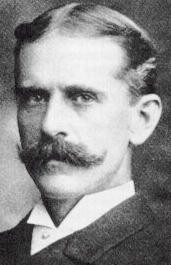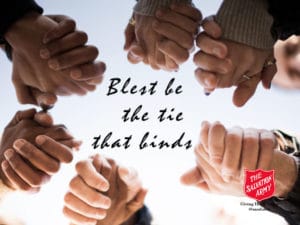Joyful, joyful, we adore Thee,
God of glory, Lord of love;
Hearts unfold like flowers before Thee,
Hail Thee as the sun above.
Melt the clouds of sin and sadness,
Drive the dark of doubt away;
Giver of immortal gladness,
Fill us with the light of day.
All Thy works with joy surround Thee,
Earth and Heaven reflect Thy rays,
Stars and angels sing around Thee,
Centre of unbroken praise.
Field and forest, vale and mountain,
Blossoming meadow, flashing sea,
Chanting bird and flowing fountain
Call us to rejoice in Thee.
Thou art giving and forgiving,
Ever blessing, ever blest,
Wellspring of the joy of living,
Ocean depth of happy rest.
Thou the Father, Christ our brother,
All who live in love are Thine;
Teach us how to love each other,
Lift us to the joy divine.
Mortals, join the mighty chorus
Which the morning stars began;
Father-love is reigning o’er us,
Brother-love binds man to man.
Ever singing, march we onward,
Victors in the midst of strife;
Joyful music lifts us sunward
In the triumph song of life.
In his introduction to the history of this hymn, Robert Morgan states that it once helped him as he recovered from a bout of depression. He especially was uplifted by the lines: Melt the clouds of sin and sadness, Drive the dark of doubt away. Unfortunately, the original wording was changed in both the 2015 and the 1987 S.A. Song Books to read Drive the clouds of doubt away, omitting van Dyke’s alliteration. However, the meaning is still there for all of us, and the Lord of love can indeed fill us with the light of day !
 Henry van Dyke was born in Pennsylvania in 1852. He was pastor of Brick Presbyterian Church in New York City, and later a professor of English literature at Princeton University. He authored several books, including the unusual Christmas story: The Other Wise Man . (Locate and read it if you haven’t already done so!) Henry also held other positions of note, including American Ambassador to the Netherlands and Luxembourg, to which he was appointed by his friend, Woodrow Wilson.
Henry van Dyke was born in Pennsylvania in 1852. He was pastor of Brick Presbyterian Church in New York City, and later a professor of English literature at Princeton University. He authored several books, including the unusual Christmas story: The Other Wise Man . (Locate and read it if you haven’t already done so!) Henry also held other positions of note, including American Ambassador to the Netherlands and Luxembourg, to which he was appointed by his friend, Woodrow Wilson.
In 1907, van Dyke was invited to preach at Williams College in Massachusetts. One morning while there, he handed the college president a piece of paper on which he had written the above hymn. He said it had been inspired by the sight of the nearby Berkshire mountains, and that it should be sung to Beethoven’s Hymn of Joy . Later, van Dyke stated that this hymn could be sung by “people who know the thought of the age, and are not afraid that any truth of science will destroy religion, or any revolution on earth overthrow the Kingdom of Heaven.” Still reassuring for us of the 21st century!
AUTHOR: HENRY VAN DYKE MUSIC: LUDWIG VAN BEETHOVEN
S.A. SONG BOOK, 2015 EDITION – #39 1987 EDITION – #10
REFERENCE: MORGAN, ROBERT J., THEN SINGS MY SOUL
Two great versions from Youtube!







